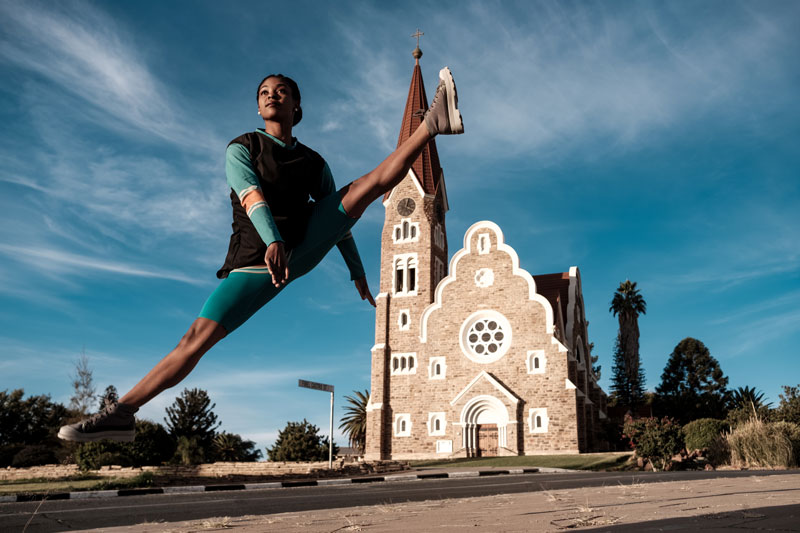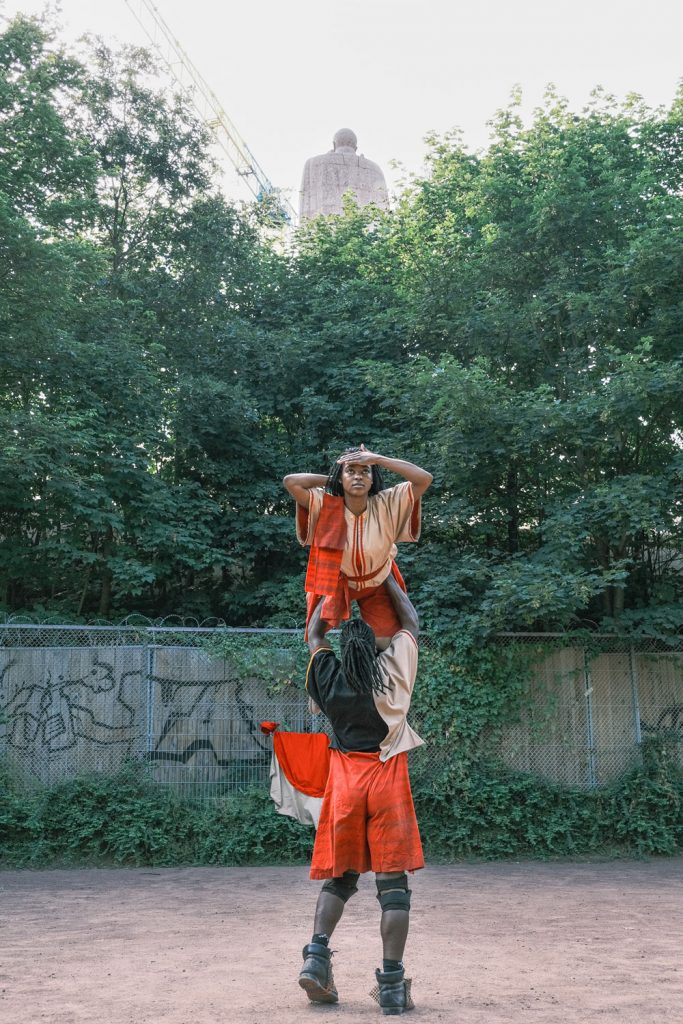A shadow hangs over Namibia–– and not just because of the low-hanging sun over the picturesque Etosha salt pan. Despite all the romanticism surrounding the desert, peace remains elusive even in the wake of the return of the looted artworks to the former German colony. The relationship with those who erected the first German concentration camps is anything but resolved.

Windhoek’s Shadows
Thousands flock to Namibia every year, in search of desert, wide-open spaces, wilderness. Invariably, Windhoek is their first port of call. German is still spoken here. Yet its colonial history, visible everywhere, remains the issue for the local dance scene. Here comes a multi-layered post-colonial portrait in five profiles.

